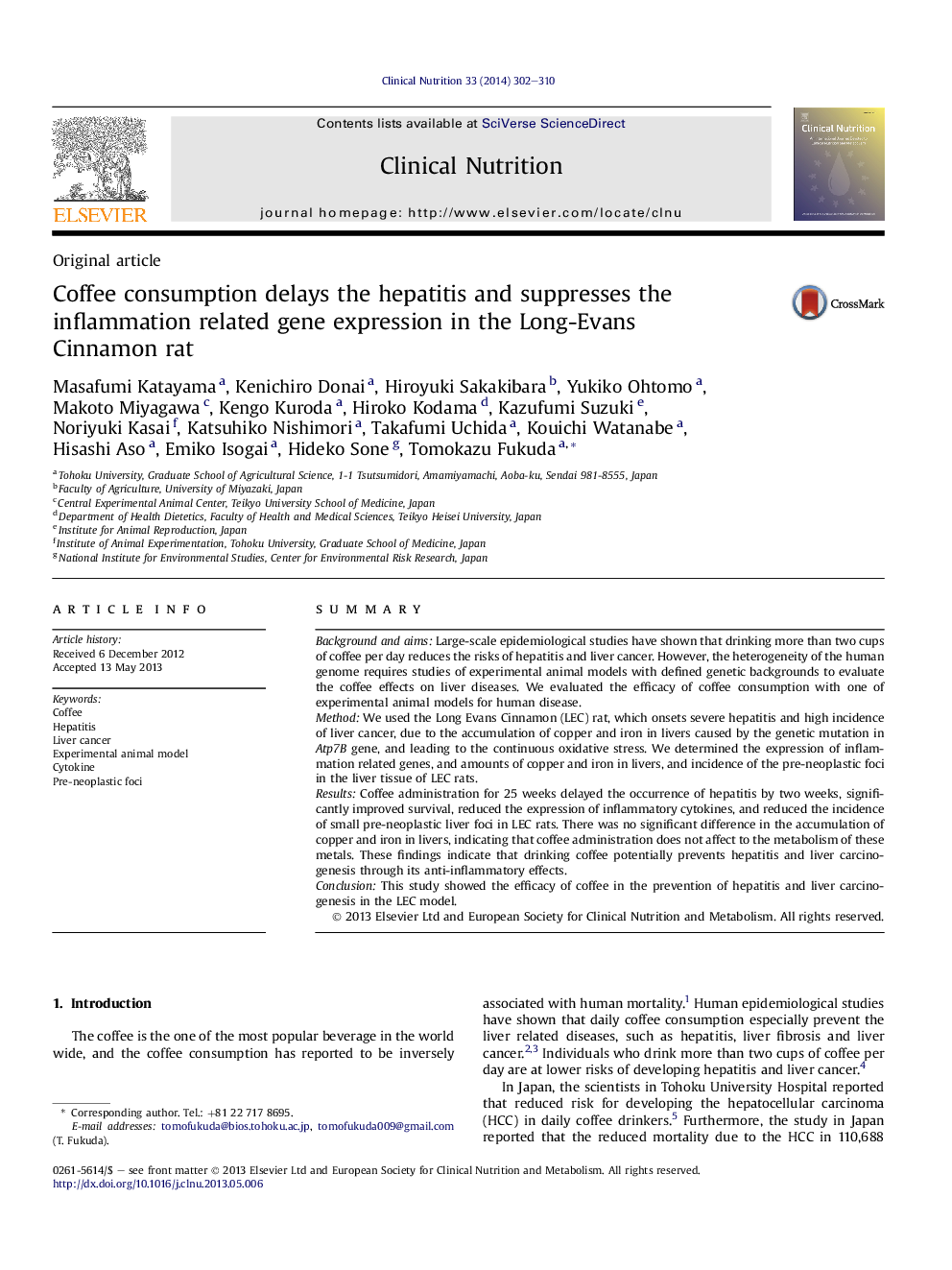| Article ID | Journal | Published Year | Pages | File Type |
|---|---|---|---|---|
| 5871509 | Clinical Nutrition | 2014 | 9 Pages |
SummaryBackground and aimsLarge-scale epidemiological studies have shown that drinking more than two cups of coffee per day reduces the risks of hepatitis and liver cancer. However, the heterogeneity of the human genome requires studies of experimental animal models with defined genetic backgrounds to evaluate the coffee effects on liver diseases. We evaluated the efficacy of coffee consumption with one of experimental animal models for human disease.MethodWe used the Long Evans Cinnamon (LEC) rat, which onsets severe hepatitis and high incidence of liver cancer, due to the accumulation of copper and iron in livers caused by the genetic mutation in Atp7B gene, and leading to the continuous oxidative stress. We determined the expression of inflammation related genes, and amounts of copper and iron in livers, and incidence of the pre-neoplastic foci in the liver tissue of LEC rats.ResultsCoffee administration for 25 weeks delayed the occurrence of hepatitis by two weeks, significantly improved survival, reduced the expression of inflammatory cytokines, and reduced the incidence of small pre-neoplastic liver foci in LEC rats. There was no significant difference in the accumulation of copper and iron in livers, indicating that coffee administration does not affect to the metabolism of these metals. These findings indicate that drinking coffee potentially prevents hepatitis and liver carcinogenesis through its anti-inflammatory effects.ConclusionThis study showed the efficacy of coffee in the prevention of hepatitis and liver carcinogenesis in the LEC model.
